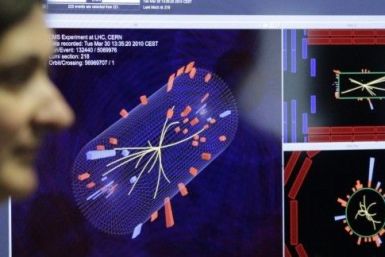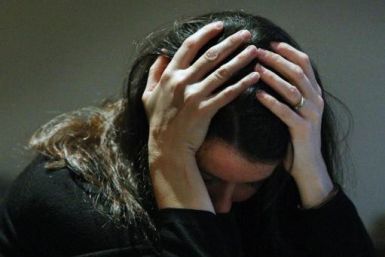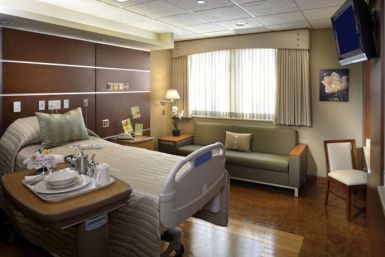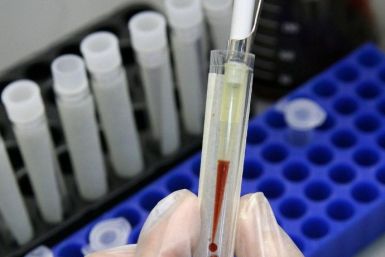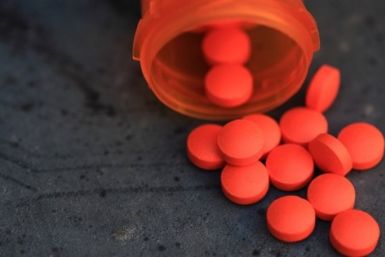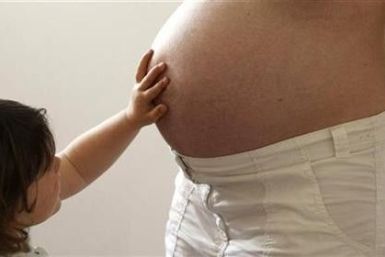Pork tainted with the highly toxic chemical dioxin may have been sold in Germany, authorities said on Wednesday.
The World Health Organization launched a plan on Wednesday to stop a form of drug-resistant malaria from spreading from Southeast Asia to Africa, where millions of lives could be at risk.
Spending just four hours a day working on a computer or watching television is likely to double the risk of heart disease and increase the possibility of premature deaths, according to a study.
A series of investigative articles in British Medical Journal conclusively prove that Dr Wakefield falsified data and there were irregularities and discrepancies in his study
Odd science claims made by various celebrities - about diets, cancer, reabsorbing sperm, hologram bracelets and more - make no scientific sense, according to a campaign group.
Who said investments in research don't pay off? Scientists from around the world are diligently working to make sure that the world's finest chocolate is better and more available.
Exposure to fluoride may lower children's intelligence, says a study pre-published in Environmental Health Perspectives, a publication of the National Institute of Environmental Health Sciences. Fluoride is added to 70 percent of U.S. public drinking water supplies.
An international research team has sequenced the genome of the woodland strawberry, opening the door for breeding tastier, hardier varieties of the berry and other crops in its family. Separately, another team sequenced the DNA of a variety of Theobroma cacao, a tree considered to produce the world's finest chocolate.
In 2011, journal Science's editors will be watching a smaller detector at the Large Hadron Collider called LHCb; new techniques that should lead to the discovery of many more genes; an ignited fusion burn; the first plug-in hybrid electric cars whose batteries are charged from a wall socket go on the market; and and results from a late-stage trial of a malaria vaccine in Africa.
The world's first 'quantum machine', a device that jiggled in ways explicable only by the weird rules of quantum mechanics, has been recognized as the 2010 breakthrough of the year, Science journal said. Constructing a synthetic genome, sequencing of the Neanderthal genome and unequivocal success of two HIV prevention trials were among the other nine groundbreaking achievements of the year, the magazine said.
Cold plasmas could be a safe and better alternative to antibiotics to treat chronic wound infections where other approaches fail, researchers say.
A recent study shows that incorporating almonds into your diet can help treat and possibly prevent type 2 diabetes, as well as cardiovascular disease.
Robots could assist doctors and nurses with monitoring patients, boosting efficiency.
Researchers from Australia are using data mining techniques to treat and prevent depression.
From hotel-style room service to massage therapy to magnificent views, hospitals are increasingly advertise their luxury services in a bid to gain market share, particularly those in competitive urban markets.
Yearly global emissions of anaesthetic agents can be compared with that of carbon dioxide emissions from one million cars or one coal-fired power plant, says a study.
Drug regimens are showing promising results as methods of preventing HIV infection.
Researchers in London have found a new way to treat hamstring injuries and treatment is none other than the patient's own blood.
The air above the Dead Sea contains very high levels of oxidized mercury, which are of major concern to humans, scientists say.
Excessive intake of alcohol takes toll on the health of New Yorkers, besides causing death of 1,500 adults annually.
May be in next few years, touchpad screens will become obsolete and would be replaced by thought-pads. Researchers have found it is possible to manipulate complex visual images on a computer screen using only the mind.
Researchers in the United States have developed a new biosensor from plasmonic nanohole arrays to detect dangerous viruses like Ebola and Marburg. The tool could be used in developing nations, airports and other places where natural or man-made outbreaks could erupt.
Using particles of gold, ultrasound and an infrared laser, scientists can now see into the body in m,ore detail than ever before.
A computer algorithm that matches kidneys to donors could help save lives.
Energy drink consumption is strongly associated with increased risks for heavy drinking and alcohol dependence, according to a new research. The research has come after the U.S. regulators are poised to ban the sale of caffeine-containing alcoholic drinks amid rising safety concerns.
Do you prefer pink tablet as it tastes sweeter than orange pills? Does color of a tablet have any effect or influence on the patients choice? Patients may trust their doctor or pharmacist, but this does not mean they will take the bitterest pill.
A team of U.K. scientists found evidence suggesting that the risk of childhood asthma associated with prenatal paracetamol exposure may depend on antioxidant genes in the mother.
New research confirms that women plagued by morning sickness in early pregnancy are less likely to miscarry.
The three winners of this year's Nobel Prize for Chemistry all developed new ways to make carbon atoms stick to one another -- a mundane-sounding process that in fact underlies the very basis of life.
Health regulators plan to spend millions of dollars to step up their scientific prowess in a move that officials say will help quickly get new treatments to patients and protect the public against possible health threats.









